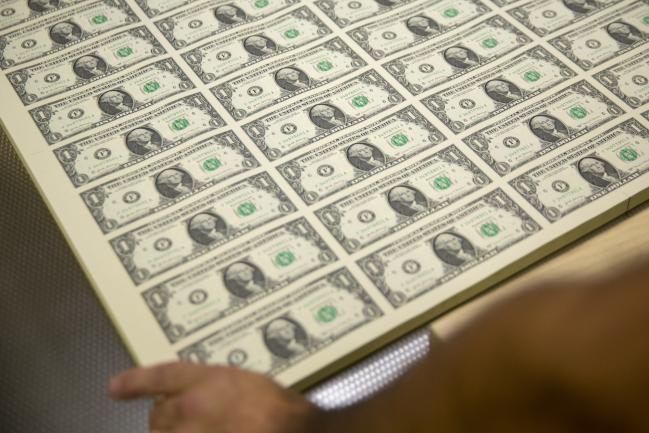(Bloomberg) -- The Trump administration is proposing tariffs on goods from countries found to have undervalued currencies, in a move that would further raise the heat of its assault on global trading rules.
The proposal, laid out in a Federal Register notice released on Thursday, would let U.S.-based companies seek anti-subsidy tariffs on products from countries found by the U.S. Treasury Department to be engaging in competitive devaluation of their currencies. Currently no country in the world meets that criteria.
But it also sets a broader standard by focusing on the “undervaluation” of currencies.
President Donald Trump has long threatened to label China a currency manipulator, and his administration has been examining how to take a more aggressive approach to what is now a largely technical exercise by Treasury to determine whether any currency manipulation has taken place.
“This change puts foreign exporters on notice that the Department of Commerce can countervail currency subsidies that harm U.S. industries,” Commerce Secretary Wilbur Ross said in a statement. “Foreign nations would no longer be able to use currency policies to the disadvantage of American workers and businesses.”
The notice released Thursday by the Commerce Department, which administers the quasi-judicial process that determines the imposition of what are known as “countervailing duties,” says it would defer to Treasury in determining whether any currency was deemed undervalued.
It also specifically says the move is not aimed at any central bank action that results in currency swings.
“In determining whether there has been government action on the exchange rate that undervalues the currency, we do not intend in the normal course to include monetary and related credit policy of an independent central bank or monetary authority,” Commerce said.
The move would be a major departure from past U.S. tariff policy, according to Scott Lincicome, an international trade lawyer and adjunct scholar at the Cato Institute. Over the past decade American companies have tried multiple times to get the Commerce Department to count a weak currency as a subsidy.
“It’s opening the door to additional tariffs on any goods from any country found to have an undervalued currency,’’ he said.
